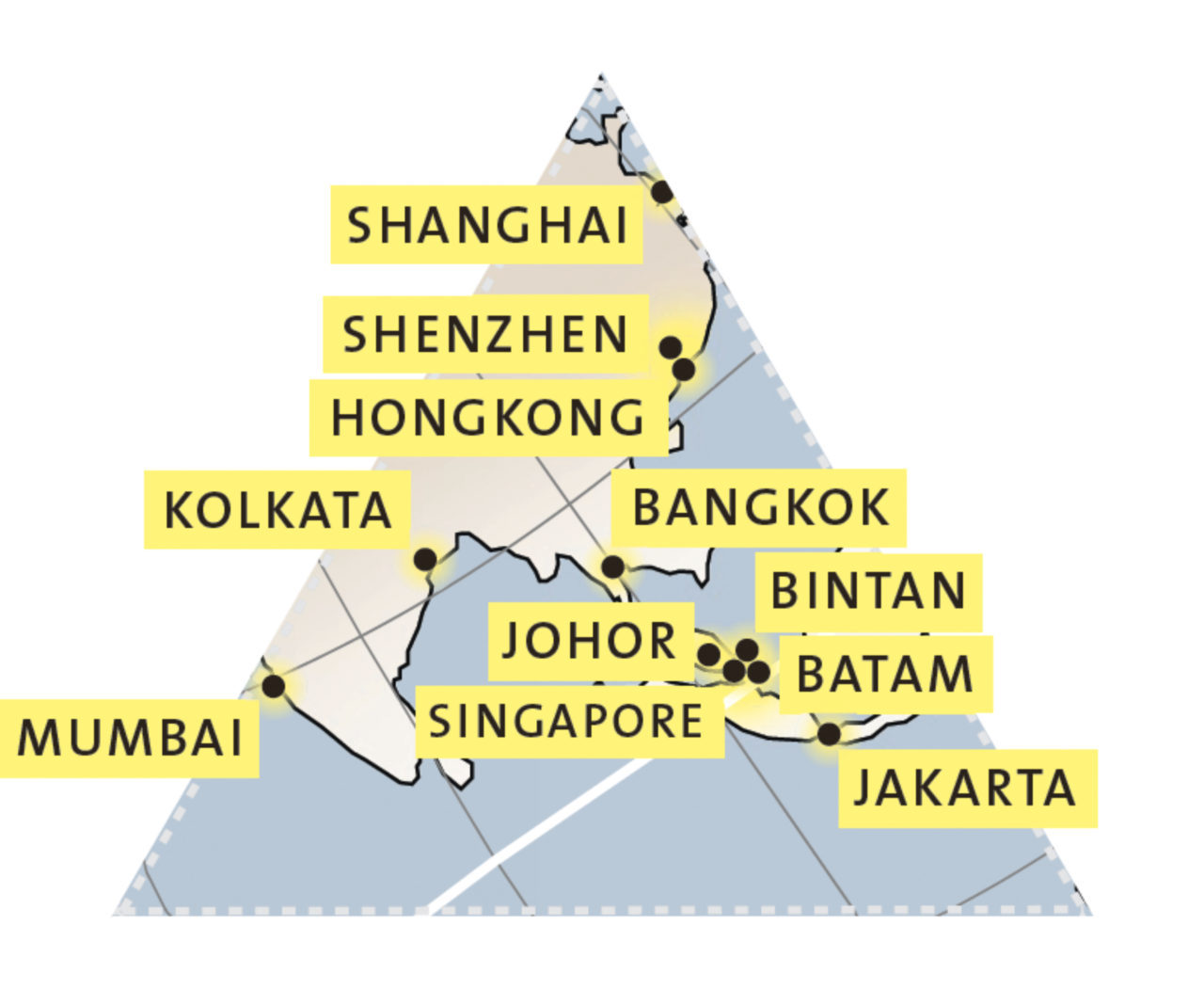
Phase 1 of the ETH Future Cities Laboratory ran for five years and comprised 13 research modules, varying from building technology on a micro-scale to territorial explorations on a larger scale. During this time, approximately 100 people were working at the FCL in different cooperative constellations. The successful completion of the programme has resulted in an approved research proposal for a Future Cities Laboratory Phase 2, which has started on 1 September 2015 for another five years. Not only were several researches successful in academia, several applications and contract researches contributed to an integration of FCL in the Southeast Asian research and knowledge industry community.
The Future Cities Laboratory (FCL) is the first Research Programme of the Singapore ETH Centre (SEC), which originally emerged from ETH’s Architecture Department. When the SEC and FCL were launched together in Singapore in 2010, they were synonymous, and thus FCL’s research project on Urbanization, Architecture and Construction became the first large outpost of ETH anywhere.
Singapore lies in the heart of Southeast Asia, which houses almost half of the world’s population and is undergoing the most rapid process of economic development and urbanization known to history. The resulting challenges in the field of infrastructure, habitat, liveability and environment are tremendous, offering multiple opportunities for urbanization research in different geographies, scales and cultures.
FCL works on different themes, in different scales and in different geographies. In total, there are 13 modules. The work ranges from detailed technology research on a building scale to territorial analyses on a regional scale. In a geographical sense, around 50% of the work relates directly to Singapore, 80% to Southeast Asia and 20% to elsewhere on the globe. The work is done in three modes: research, design research studios and applied research (real projects). Synergies between modules mark the transition of the fieldwork and inventory phases into the elaboration and synthesis of the modules where fieldwork results and preliminary findings are turned into actual projects, development scenarios, design guidelines or policy recommendations.
The mix of basic research, design research studios and applied research has generated partnerships with government agencies as well as public and corporate institutions. Partnering with universities, companies and agencies is fruitful on various levels, as is the engagement of senior faculty in official assignments in Singaporean and regional institutions, not to forget important exchanges and opportunities for senior staff with partner universities.
Despite the initial pillar-like structure of the FCL-1 programme, we have succeeded in defining the contours of an interdisciplinary culture of collaboration. The collective effort to create a research community from diverse nationalities in a new cultural context, the diversity in the disciplines of the researchers and the lab’s location in an open, glazed space that stimulates exchange, may inform the organization of other labs or competence centres.
After a very positive evaluation, the National Research Foundation of Singapore asked ETH Zurich to prepare a proposal for the subsequent period, which will build on the experiences of the current programmes. FCL has started its second phase, which will run from September 2015 to September 2020.
FCL will be present at the annual exhibition of the Department of Architecture from 25 Sept–30 Oct 2015, ETH Hönggerberg, Zurich, Switzerland, Entrance Hall (HIL D 30).
From 2011 to 2015, Prof. Ir. Kees Christiaanse was Programme Leader of the Future Cities Laboratory in Singapore and Principal Investigator as well as Module Leader for Module IV: Urban Design Strategies and Resources. In the second phase of FCL, Prof. Ir. Kees Christiaanse will be based in Zurich as the Programme Coordinator and Principal Investigator for: The Grand Projet: Towards Adaptable and Liveable Urban Megaprojects.
Image: Buckminster Fuller’s Southeast Asia Triangle, which covers 50% of the world’s population and 80% of the FCL research sites.